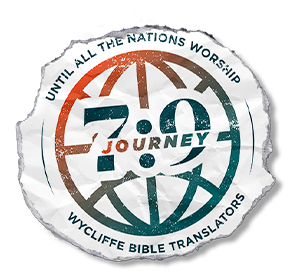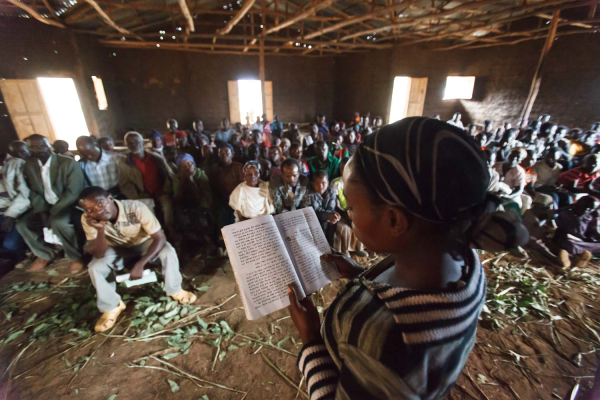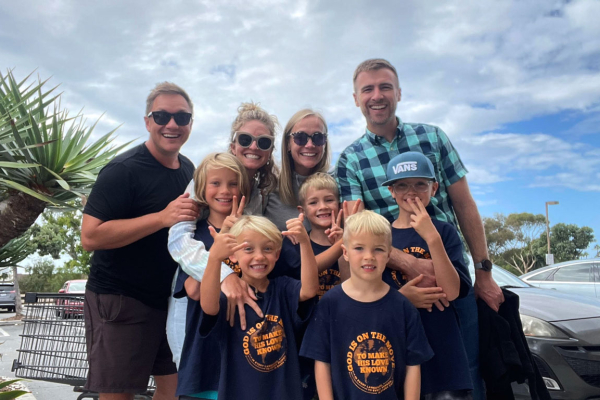Making a Difference Now and For Generations to Come
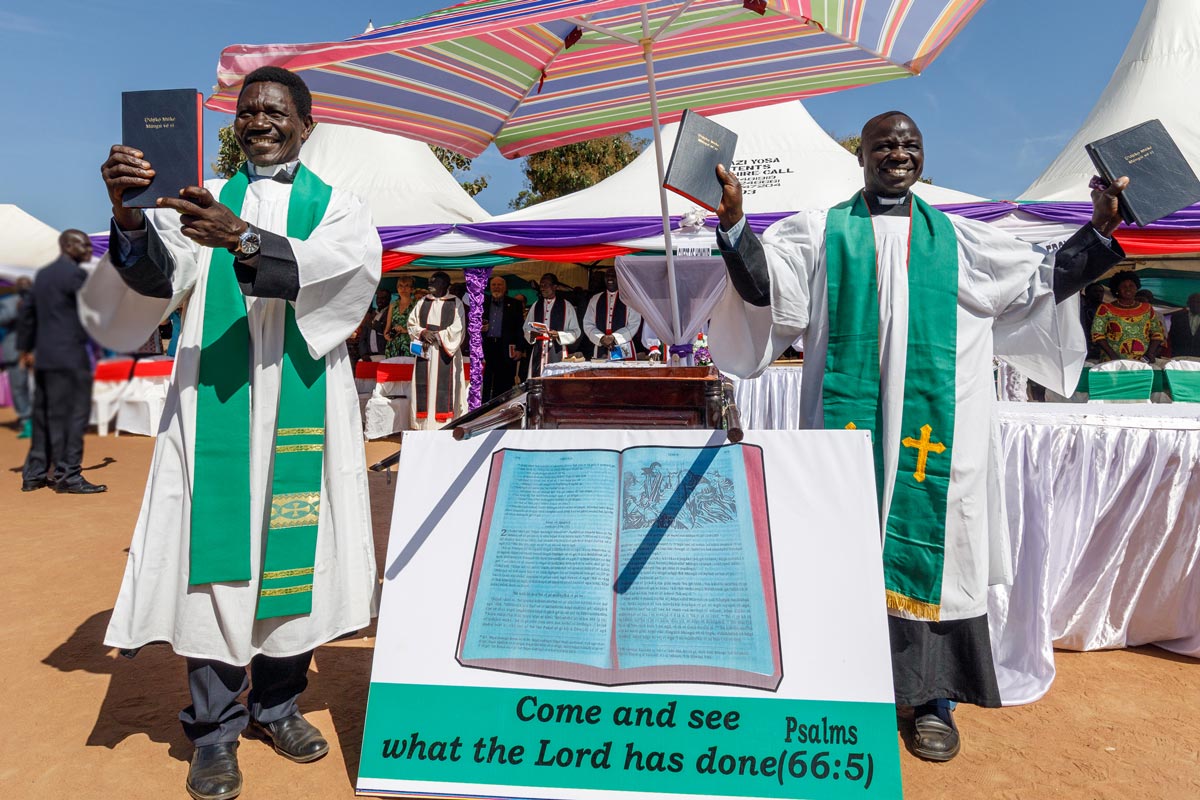
God is on the move around the world today through Bible translation, causing profound transformation in countless lives. As people encounter Him in their language, individual lives, families and entire communities are changed. God is not only transforming lives today; He is changing lives for generations to come.
We celebrate today’s Bible translation milestones knowing they are paving the way for future ones. The people impacted by Scripture are leaving a legacy of faith just like Psalm 145:4 reminds us:
Stories of Transformation and Legacy
There are countless stories of the legacy of God’s faithfulness to His people, and we wanted to share a few examples with you. The people in the following four stories are helping provide the next generation of people across the world with access to the truth of God’s goodness and love through His Word.
A 5-Year Old’s Prayers Transformed an Entire Community
You’re never too young to be able to make a difference in the world, and Sam’s story is proof of that.
Sam’s parents were missionaries with Wycliffe Bible Translators and encouraged their children to support Bible translation projects from an early age.
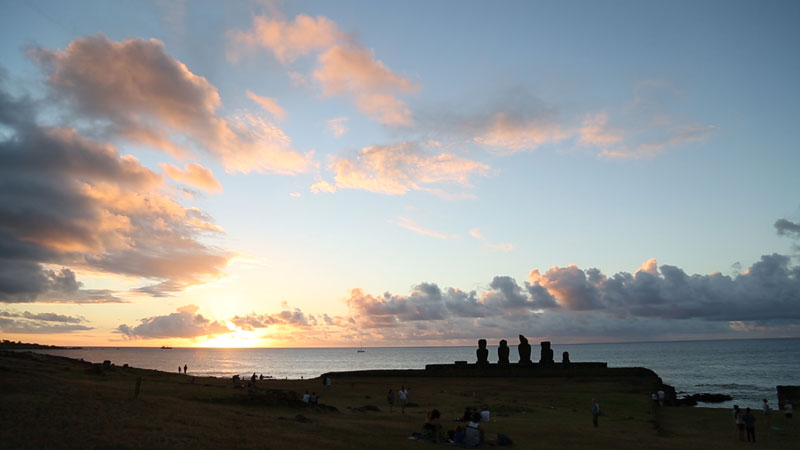
Sam explained: “There was a large world map on one of the walls … where we could stick a pin on a location indicating a [people group] we wanted to pray for and to support the mission team there.”
At just 5 years old, Sam studied the map and was interested in Easter Island — a country that is located 2,300 miles off the west coast of Chile in the Pacific Ocean. He placed his pin on Easter Island and said he wanted to pray for and give toward the translation project there.
Sam’s choice had a problem: There wasn’t a translation project in Easter Island yet. Little did Sam know, however, that around the same time he started praying, halfway around the world a newly married couple named Bob and Nancy Weber were also praying — asking God to use them to further His Kingdom through Bible translation. They were willing to go wherever God called them.
And then God answered the Webers by calling them to Easter Island! There, the couple worked with the Rapa Nui people whose language had been facing possible extinction. Bob and Nancy continued to work alongside the Rapa Nui, eventually helping them translate their New Testament.
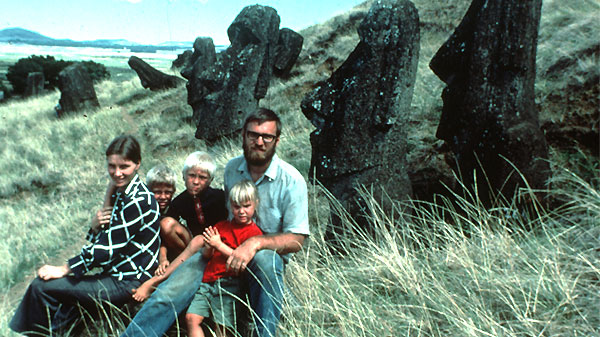
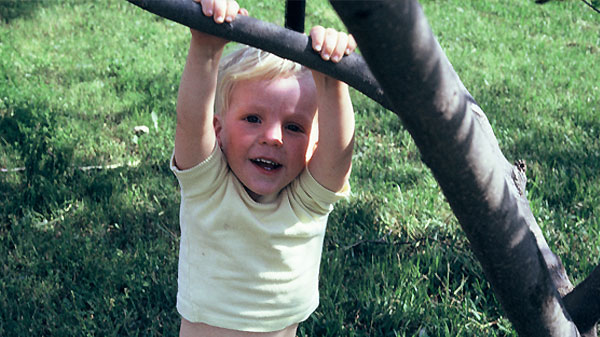
“That really impacted me as a kid,” Sam recalled, “to be praying for something of that importance and then seeing God bring it to fruition.”
Scripture reminds us of the power of our prayers — no matter our age!
Praise God that today, the Rapa Nui have access to the entire New Testament in their language. God is always at work, answering prayers in ways we cannot even fathom!
Empowering Children Through Literacy and Education
Many of us can recall sitting with our families as children, discovering the joy of picture books and stories. As we grew, we learned sight words before moving onto reading more complex books and materials.
We can often take our access to literacy for granted in the U.S.; in many other countries in the world, literacy materials aren't easily accessible.
Even if children can attend school, many will not learn to read and write in the language that they use at home — instead they’ll likely learn in the country’s official language.
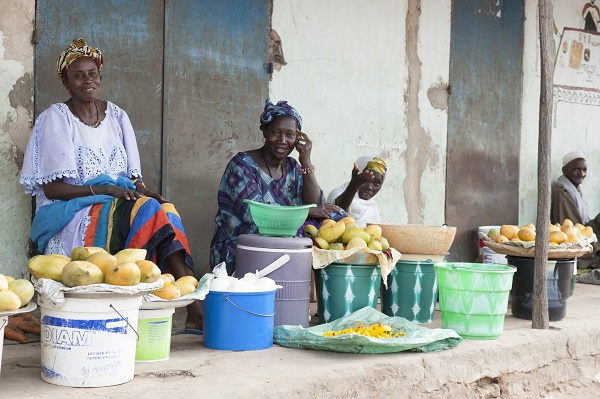
Education is a powerful tool that makes a substantial community impact. Around the world today, people are gaining access to literacy materials that allow them to read and write in their own languages for the first time. That is changing whole communities — just like Tida and Soutoucou in Senegal.
Tida, Soutoucou and a handful of other women worked together to grow produce and sell it at their local open-air marketplace. They couldn’t always do that though.
In a culture where men are the primary breadwinners and decision makers, and women rarely hold positions of power, the market garden that the women created was a way to empower themselves, help support their families and set examples for their community.
How were they able to accomplish this? Through a literacy program that Wycliffe funded and SIL (Wycliffe’s primary partner) coordinated years ago that gave women the chance to read and write their language for the very first time.
Tida, in fact, was well into her thirties before she saw her own language written down or learned to read it.
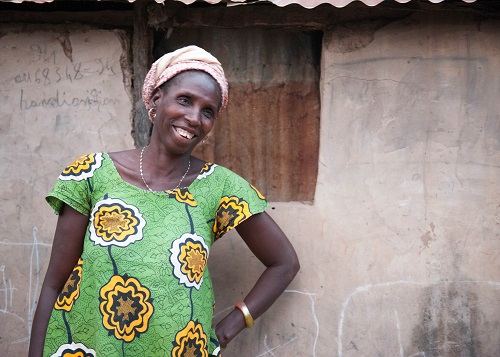
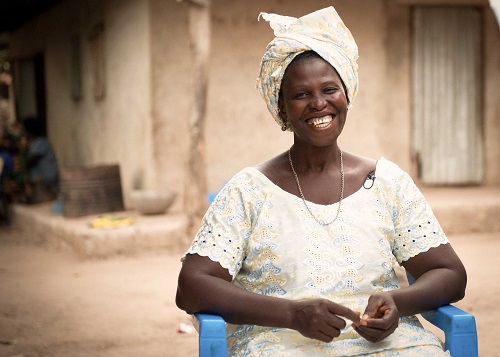
What the women were most excited about though was the impact literacy had on their families.
Their school-age kids attended classes taught in Senegal’s official language, French, which was difficult since Manjak is their first language.
To help their children, the women shared their Manjak texts with their kids, which improved their literacy and French skills at school. Some kids even took their mom’s places in the Manjak literacy class.
“I love it when my kids study Manjak,” Soutoucou said. “We are here to help our children and our families.”
When people are able to understand God in their own language, lives and communities — just like Tida and Soutoucou’s — change forever.
Translating for the Next Generation
As a young man, Lucas returned to his village in Ghana to care for his ailing mother. While he was there, an older man named Reverend Kwasi Bansah, who was part of the Nyagbo Bible translation team, heard that Lucas had arrived in the village.
Knowing Lucas had a degree in computer technology, the reverend paid him a visit to introduce the Bible translation project and talk about the software they were using. Rev. Bansah began to occasionally call on the young man to check things for him on the computer.
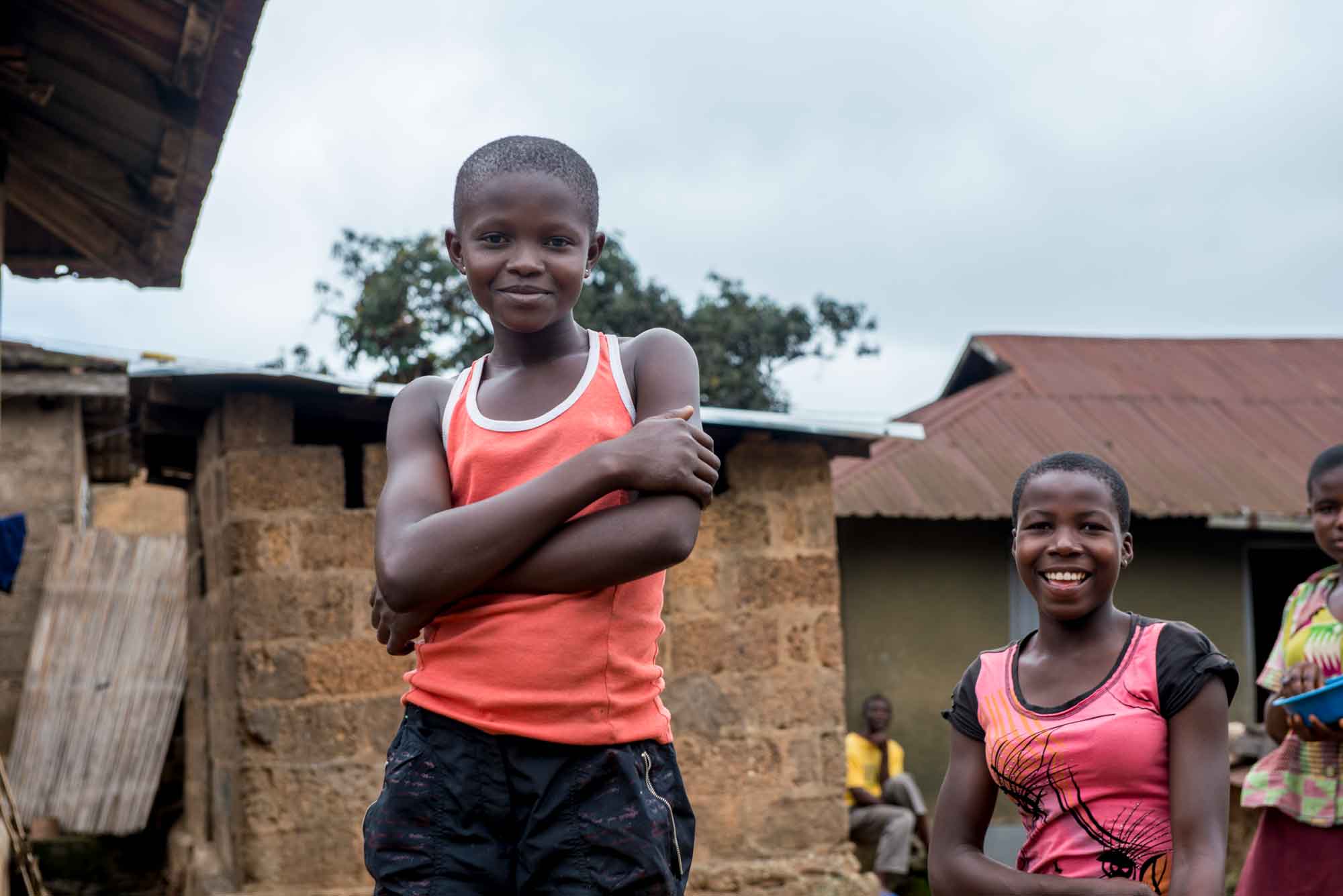
Not long after, one of the other translators began to experience trouble with his eyesight. Soon he couldn’t read the computer screen and do translation work because the cataracts in his eyes were so bad.
Knowing that Lucas had already helped them with computer work, Rev. Ziangro invited the young man to become a part of the translation team and type up things for him on the computer.
Lucas was fascinated with the idea of a translation project in Nyagbo and joined the team. As people began to get portions of Scripture in Nygabo, God began transforming the community.
Lucas noted: “Whenever Scripture is read in Nyagbo [in churches], you can see the mood has changed.”
Where people previously fell silent (or even fell asleep), Scripture readings now produce joy. People clap and are excited. They perk up and even occasionally respond to what the preacher is saying.
After the launch of the Gospel of Mark, people came up to Lucas and encouraged him about the work and the progress of translation in their own language.

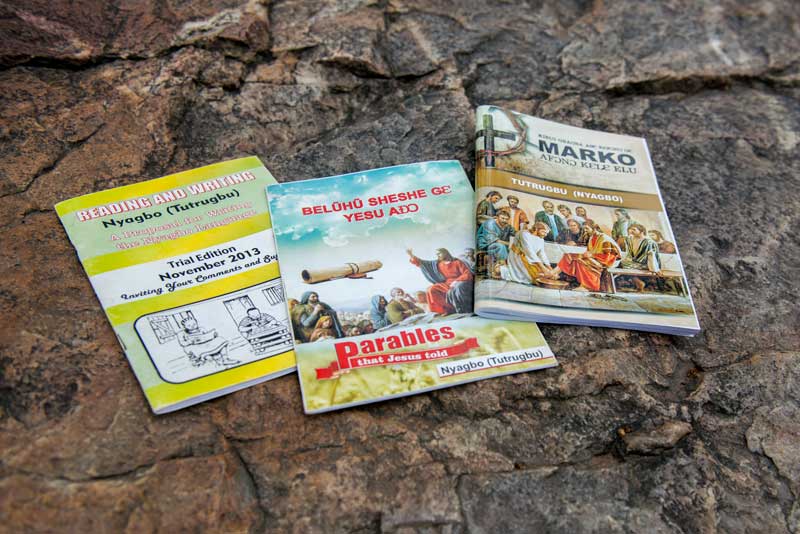
In 2021, the Nyagbo New Testament was officially dedicated! It was a joyous ceremony, as people traveled from near and far to celebrate the publication of God’s Word in their language.
“We’ve always been taught that when you speak to a child in his or her [language], it goes straight to the hearts,” Lucas said.
Lucas hopes Nyagbo will continue to be used in schools and churches throughout the region so that younger generations can grow up knowing God speaks their language.
The Impact of the Isnag Bible in the Philippines
An important part of leaving a legacy is not just looking ahead but also looking back on where we’ve been. Even when it seems impossible and the journey is long, God demonstrates His faithfulness to us. The Isnag people in the Philippines know this.
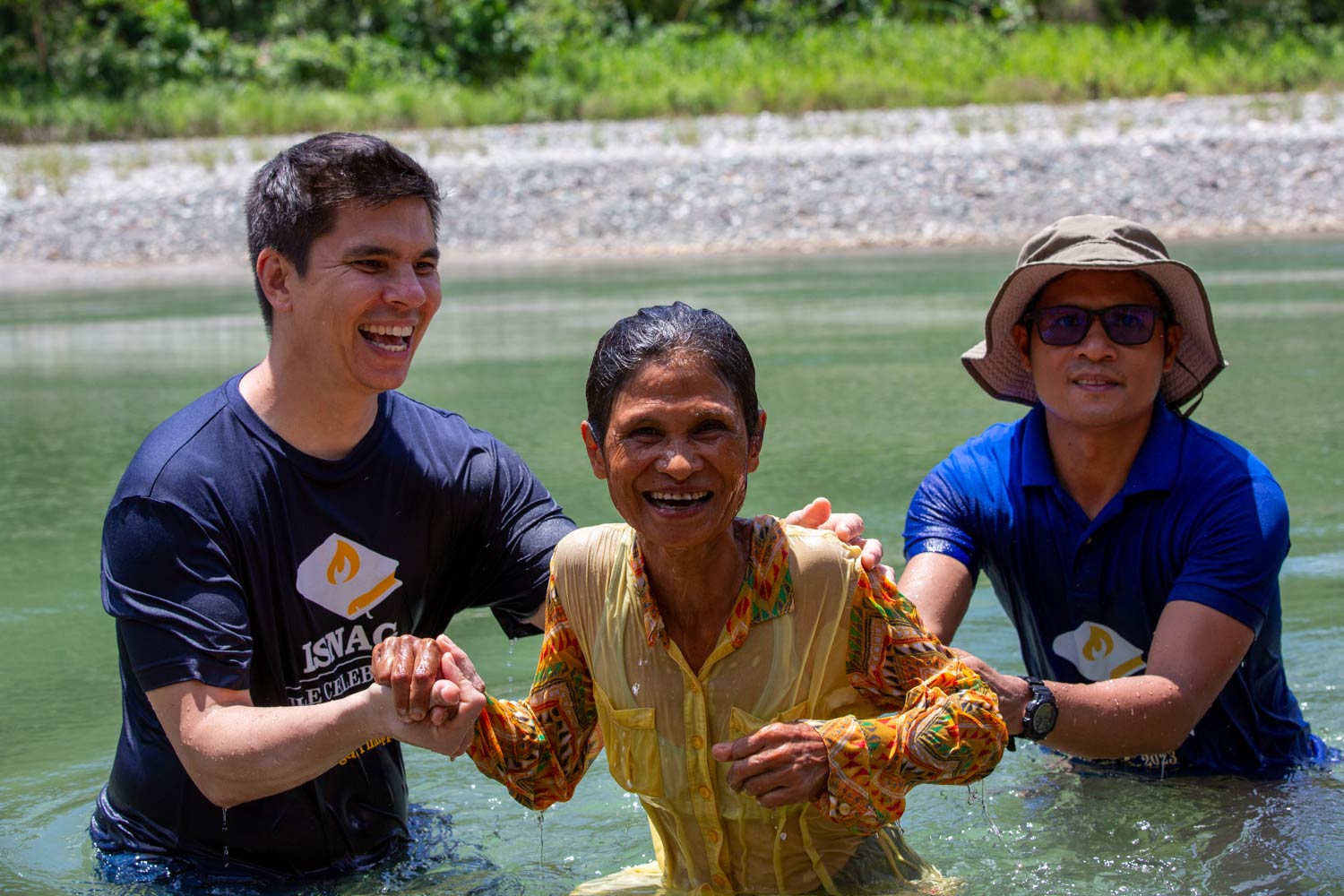
Nard Pugyao was just 7 years old when he was transformed by the Book of Mark in his language of Isnag. God spoke to Nard’s heart, and his life was changed forever.
Since then, he’s encouraged others to walk with Jesus just like he did and has dedicated his life to helping produce more Isnag Scriptures.
The Isnag New Testament was eventually dedicated in 1982, and a revised New Testament, plus Genesis and Exodus, was dedicated in 2006. But the Isnag people still did not have the complete Bible.
God was at work all this time in Nard’s life and his family. Nard’s nephew, Mark, would eventually become part of the team translating the Old Testament into Isnag!
And in June 2023 — more than 66 years after the gospel first arrived to the Isnag people in Nard’s small village of Dibagat — the full Isnag Bible was dedicated!
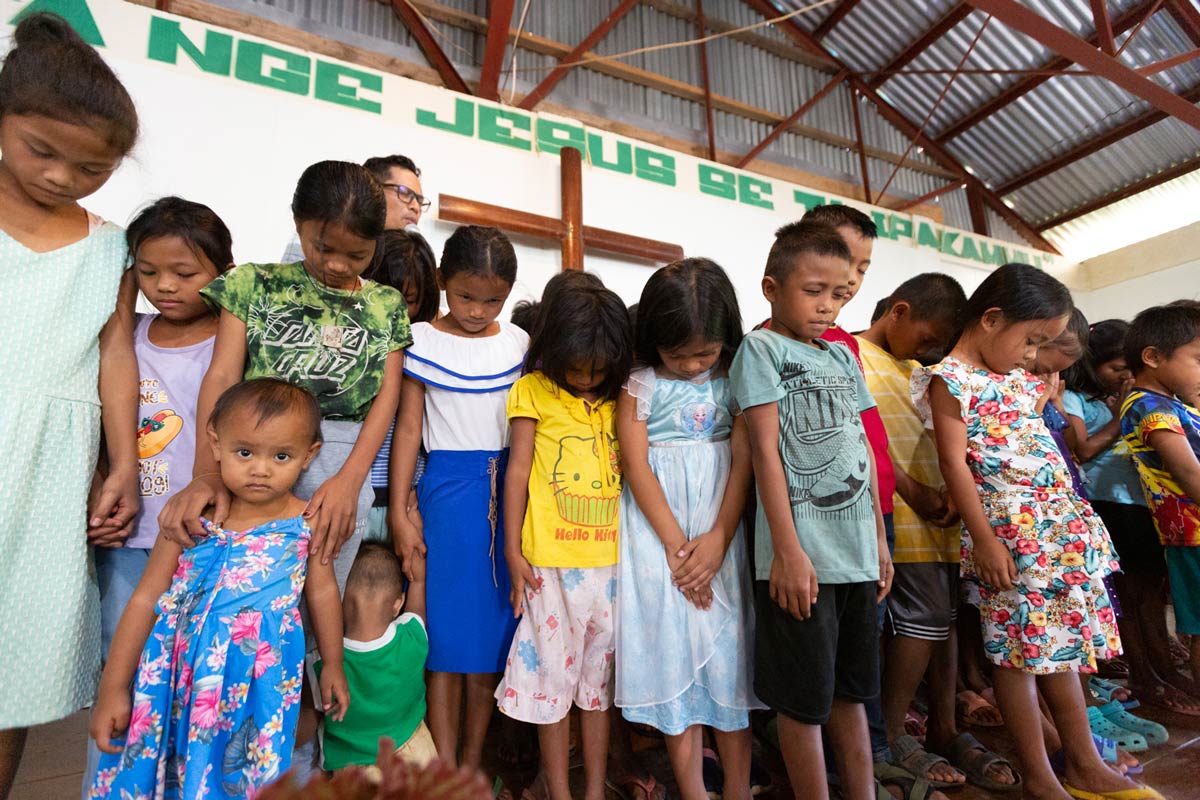
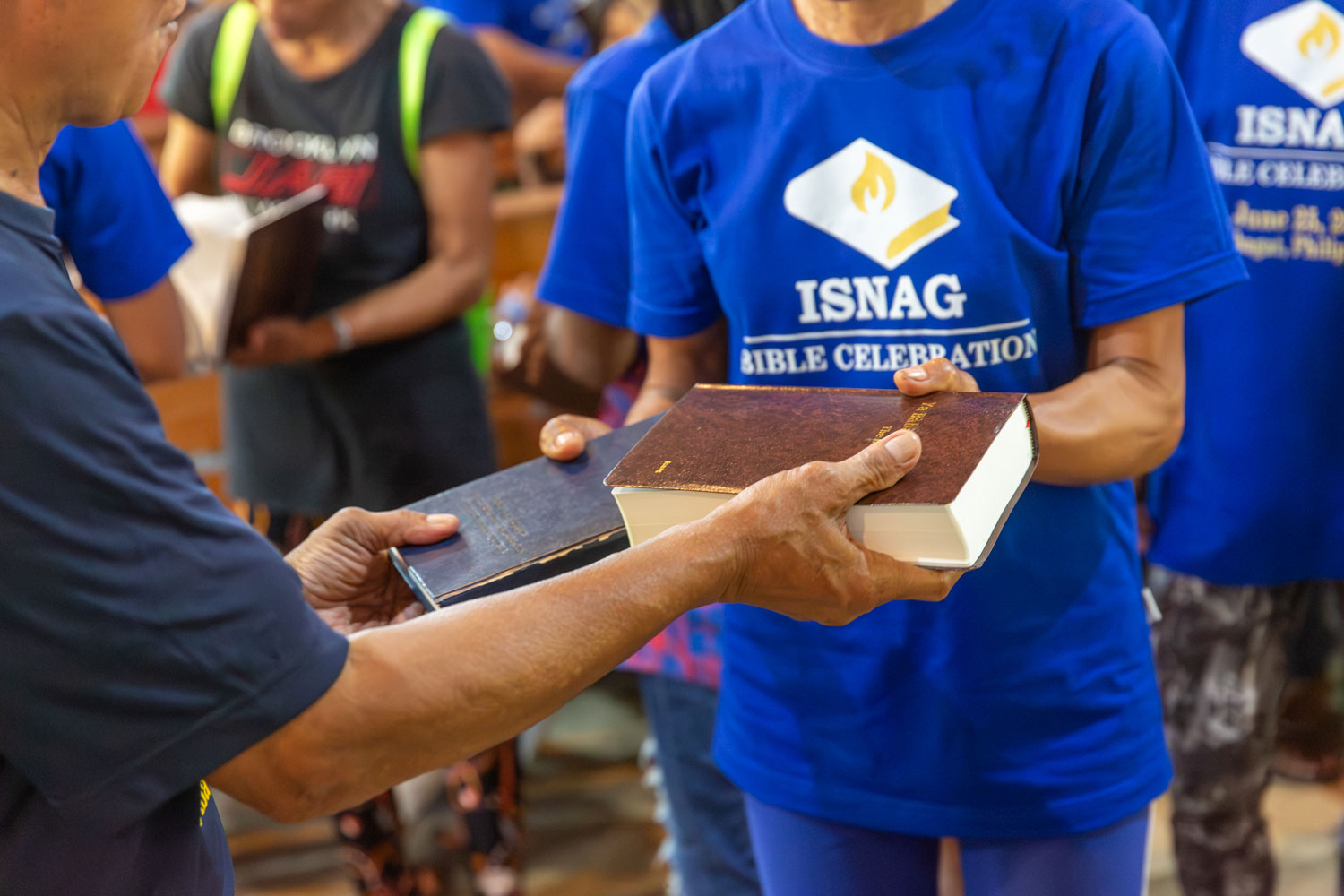
“I saw a lot of people excited to get the Bible. I hope that when they get the Bible, they read it with the kids, explain what it is and tell them how important that book is — not tearing it, but treating it as if it’s precious,” Nard’s niece, Enol Paul, noted.
Nard and Mark passed out the Bibles at the dedication to people from the older generations. They, like Nard, had waited their entire lifetime for this gift.
Then the younger generation received their copies of the Bible and were prayed over during the ceremony. They are part of a generation that will never remember a day when the full counsel of God’s Word wasn’t in their language.
This is why Bible translation is so important! It provides people from every generation — young and old — with an opportunity to understand just how much God loves them, sees them and knows them personally. Praise God for His faithfulness to the Isnag!
A Legacy of God’s Word
God is constantly drawing people around the world to Himself through Scripture and proving His faithfulness from generation to generation.
Lamentations 3:22 reminds us that “the faithful love of the Lord never ends! His mercies never cease” (NLT). And the legacy of Bible translation means that the people whose lives are changed today will have a ripple effect for years to come.
Entire families, communities and regions of the world will be changed because the Word of God is available in their language.
How You Can Be Part of This Legacy
You have the opportunity to be a part of this incredible journey of transformation and community impact that God does through Bible translation. You can support Bible translation efforts by praying for projects globally, donating financially, volunteering your skills and spreading awareness to help all people experience God’s love and guidance through Scripture in a language that touches their hearts.
Wherever you are, you can be part of providing the next generation with Scripture. Imagine the lives that will be transformed, the communities that will be strengthened and the lasting impact you will help create.
Could that be your legacy?
Journey With Us
Are you new to Wycliffe? Hop aboard Journey 7:9! We want to see people from every nation and language able to worship before God’s throne (Revelation 7:9). Travel with us to see how Bible translation is making that happen: no passport needed!
Explore the Journey

